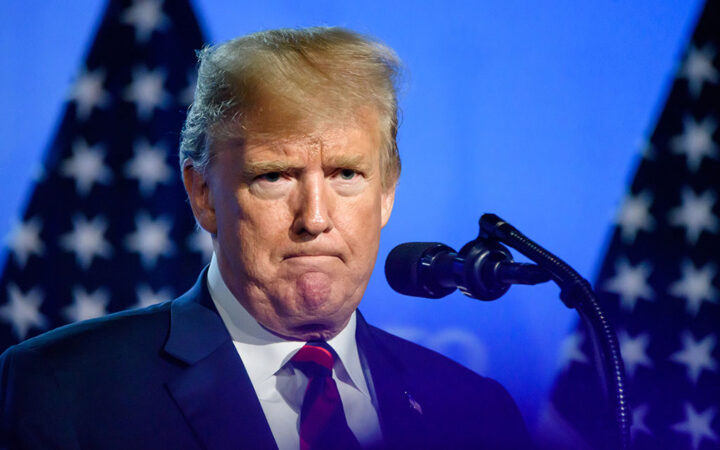
With over 3 years of crypto writing experience, Bena strives to make crypto, blockchain, Web3, and fintech accessible to all. Beyond cryptocurrencies, Bena also enjoys reading books in her spare time.

Trump's Bitcoin reserve proposal sparks controversy as ex-Treasury Secretary Summers calls it crazy, questioning its feasibility.
Former United States Treasury Secretary Lawrence Summers has branded a proposed national Bitcoin reserve as “crazy”, expressing strong skepticism about its feasibility and motivation. Speaking on Bloomberg TV on December 6, Summers criticized the idea floated by President-elect Donald Trump, which involves establishing a strategic Bitcoin reserve.
Summers dismissed the proposal for a national Bitcoin reserve, describing it as an unworkable strategy. He argued that such a move would primarily serve the interests of Trump’s supporters who advocate for cryptocurrency rather than offering substantial economic benefits.
“Some of what is being said, this idea that we should have some kind of national Bitcoin reserve, is crazy,” Summers remarked.
Summers discussed the reasoning for maintaining reserves like oil and gold. He acknowledged the necessity of a national oil reserve and referenced the historical accumulation of gold at Fort Knox over a century ago. Transitioning to his critique, he questioned why the government would prioritize supporting an asset like Bitcoin by amassing a non-productive stockpile.
“There’s no reason to do that other than to pander to generous special interest campaign contributors,” said Summers.
During his campaign, Trump suggested that the US government should retain the Bitcoin it has confiscated. According to Arkham Intelligence, this amounts to approximately 198,000 BTC, worth over $19 billion. The bold proposal gained traction among Trump-aligned Republicans, including Senator Cynthia Lummis.
Lummis has been particularly vocal about her support for the plan. She proposed that the government purchase an additional 1 million BTC, roughly 5% of Bitcoin’s total supply, and hold it for at least 20 years. Her advocacy stems from a belief that such a move could tackle the United States’ $36 trillion national debt.
Despite the bold claims, skepticism remains high. Avik Roy, president of the Foundation for Research on Equal Opportunity, dismissed the proposal as overly ambitious. At a recent crypto summit, Roy remarked:
“The Bitcoin reserve is good, but it does not solve the problem. You still have to actually do the budgetary reforms to get us out of this $2 trillion a year of federal deficits.”
Interestingly, Summers acknowledged that not all of Trump’s crypto rhetoric is misguided. He agreed that financial innovation, including cryptocurrency, deserves support. “I think we need to support financial innovation wherever it may go, and there are probably respects in which crypto has been over-regulated by overzealous regulators,” Summers said.
The former Treasury Secretary has prior experience in the crypto world, having served as an adviser to the Digital Currency Group (DCG) in 2016. However, his stance on using Bitcoin to resolve national issues remains firmly negative.
Supporters of a national Bitcoin reserve argue that it could bring financial stability and innovation to the forefront of US policy. Critics, however, see it as an ineffective distraction from the country’s fiscal challenges. Lummis’ ambitious plan has reignited discussions around how to address federal deficits and mounting debt.
Disclaimer: Coinspeaker is committed to providing unbiased and transparent reporting. This article aims to deliver accurate and timely information but should not be taken as financial or investment advice. Since market conditions can change rapidly, we encourage you to verify information on your own and consult with a professional before making any decisions based on this content.
Bitcoin News, Cryptocurrency News, News

With over 3 years of crypto writing experience, Bena strives to make crypto, blockchain, Web3, and fintech accessible to all. Beyond cryptocurrencies, Bena also enjoys reading books in her spare time.
